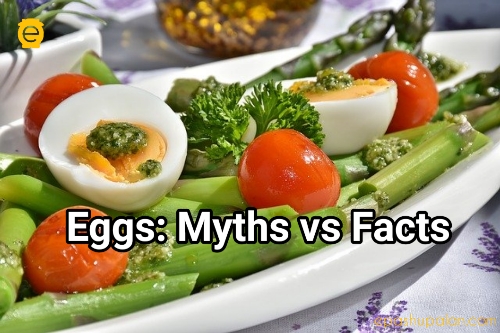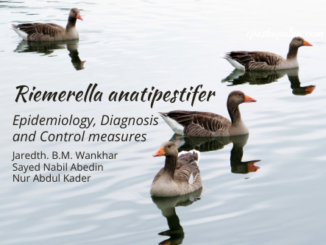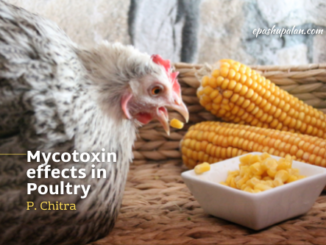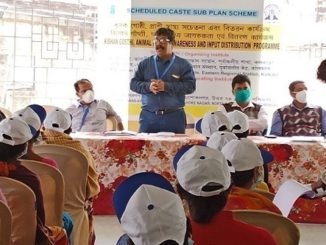From the childhood we heard a slogan as “Sunday Ho Ya Monday Roz Khao Ande”. Along with milk, “eggs contain the highest biological value (gold standard) for protein” So, it has been said that egg is considered to be the second complete food after mother’s milk. Hence to promote egg consumption different programs and campaigns have been conducted by Government of India. A committee named as NECC (National Egg Coordination Committee) has been formed with the association of poultry farmers with the objective of conveying the value of egg consumption to the peoples and upliftment of poultry sector. Some of the complements given by NECC to egg like, “Egg is the tastiest multivitamin capsule in the world”, “Egg is Nature’s Super Food”, “Egg is Nature’s Vitamin Pill”.
An egg is rich in 9 essential amino acids, 6gm of high-quality protein, 5gm of good fat and is the only food that naturally contains vitamin D, prevent hair loss etc.

Busting of fallacies on eggs with facts
- High quality of cholesterol in egg causes heart related problems: On the basis of research finding, it has been suggested that dietary cholesterol does not produce any heart related issues because liver is responsible for forming cholesterol with the help of saturated fat and trans-fat present in our diet. Hence a heart patient is also able to have an egg per day.
- Protein content of egg is decreased after it’s cooking: Consuming raw egg may have chances to get infection of several egg-borne diseases like Salmonellosis. It is mainly performed by the gym workers with the false concept of getting more protein in raw egg as cooking causes denaturation and alteration of protein value. Raw egg is rich in Avidin (biotin binding factor) that decreases the biotin absorption and leads to its deficiency diseases.
- Incubation results in every egg to be hatch into a chick: It’s completely a wrong statement. Laying is a natural phenomenon in layer birds after they attain age of laying. Egg will only hatch if the female birds are allowed to mate with the males which lead to fertilization and embryo development. Hence the table eggs are unfertilized eggs and sure to be used for cooking.
- Eating eggs in summer causes digestive and skin problems: It is said that not to use egg in summer as it results into digestive and skin related issues as it produces enormous heat in body during its metabolism. Excess of consuming any food may cause damage and upset of health. Hence eating of one egg per day in summer doesn’t cause any ill-effect but it provides a nutritional benefit and maintain the body fluid balance.
- Presence of blood spot in egg resembles a fertilized egg: Trauma or injury in the oviduct of layer result into fine bleeding which gets incorporated as drop of blood into egg during its formation. It neither reflect the fertilized egg nor the presence of embryo in it.
- Supply of plastic-eggs or synthetic eggs in the name of real egg in the market: Several news and videos have been shared in social media that some countries are preparing eggs from plastic that completely resembles the real egg. It’s totally unfeasible to sell plastic eggs in rate of real eggs as original eggs are present in abundant to cover the market need.
- Size of egg determined by size of birds: It is believed that large size bird will produce large eggs and small size birds will produce small eggs. It’s totally not correct because size of egg depends upon several factors like strain and variety of birds, age of birds, their nutritional supplement, type of housing for rearing, stocking density etc.
- Unfertilized eggs have lower nutritional content than the fertilized egg: The only difference between unfertilized and fertilized egg is that the fertilized eggs have tendency to get hatch into chicks on incubation. Hence the both are similar in nutritional content.
- White or farm eggs are less nutritive than brown or desi eggs: Scientifically the color of eggshell is due to genetic makeup of layer from which it has been developed. The indigenous or desi birds lay off white to brown color eggs while the farm birds lay white shelled egg. Certain other factors like type of feed, level of stress etc. may hamper the color of eggshell. But in respect to nutritive value both eggs are similar and contain similar composition.
- Darker the yellow color yolk more will be the nutritive: Color of yolk depends upon the amount of carotenoid supplied in feed of layer bird. So, there is not any relationship between yolk color and nutritive value of egg.
- Washing of egg prior to storage keeps it free from Salmonella: Presence of thin cuticle results in closing of pores present in the eggshell that prevent entry of pathogens. While washing this cuticle is removed and thus promote chances of bacterial entry inside the egg while storage. As Salmonella is present inside the egg during the egg formation (if the bird is infected) thus known as egg-borne disease. So, washing of egg before storage will not cause elimination of Salmonella from egg rather it makes more prone to further infection.
- Production of eggs in farms is induced by injecting hormones or by providing hormones in feed: Laying of egg in birds is a natural physiological process which is triggered when they attain age of laying. For farm layer it is basically started after the age of 19-20 weeks of birds. Hence no medication is provided for production of egg in farm.
- Discard egg if it contains a white string attached to egg yolk: To hold the yolk in its position a proteinaceous structure with the opaque appearance a white string known as chalazae is present. Being protein in nature its consumption causes not any health issues.
- Consuming eggshell unintentionally results in health problems: Eggshell is mainly composed of calcium carbonate which gets digested in stomach if gets ingested in small amounts. But a large piece of it can damage the mucosa of oral and esophagus due to its sharp margins.
Egg being a rich source of protein, fat, vitamins (A, B, D, E, K) and minerals like calcium, phosphorus, selenium, iron, sodium etc. It is recommended to use in case of malnutrition due to its easy availability and low price. It helps in growth and development of bone, muscle, heart etc. Any adulteration within egg is impossible i.e., it is pure and safe to be used.
“Break The Myths And Have An Egg-Cellent Day”






Be the first to comment